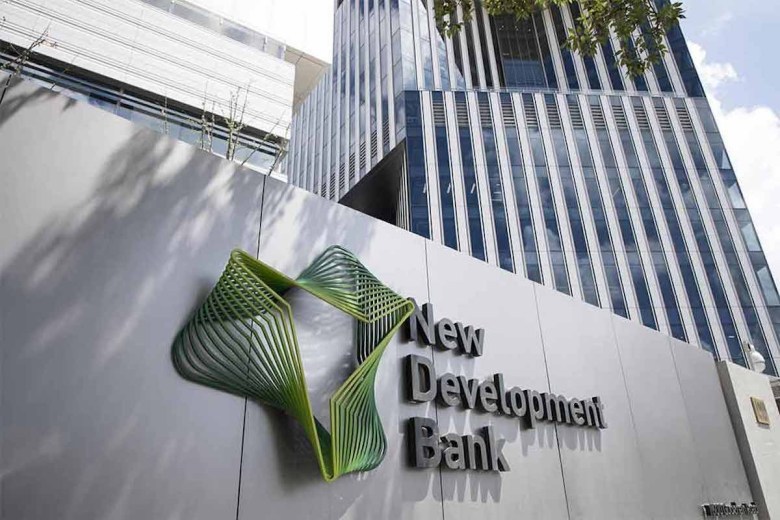Politics
Indonesia Joins New Development Bank to Accelerate Green Energy Shift

Indonesia’s recent membership in the New Development Bank (NDB) represents a significant step forward for the country’s energy ambitions. This partnership may reshape how the world’s fourth-most populous nation finances and implements its clean energy initiatives, setting a potential benchmark for other developing countries. Under the leadership of President Prabowo Subianto, Indonesia aims to achieve a remarkable target: 100% of its electricity generated from renewable sources within the next decade.
Achieving this vision poses considerable challenges. Currently, around 80% of Indonesia’s electricity supply relies on coal and gas. Transitioning to renewable energy sources such as solar, wind, hydro, and geothermal will require not only innovative policy but also access to affordable financing. The NDB can provide this necessary support.
NDB: A Catalyst for Development
Established by the BRICS nations—Brazil, Russia, India, China, and South Africa—the NDB focuses on funding infrastructure and sustainable development projects in emerging economies. Unlike traditional Western-led lending institutions, the NDB offers more flexible financing terms, which can be transformative for Indonesia’s energy transformation.
The potential for low-interest, long-term loans from the NDB could enable Indonesia to pursue projects that might otherwise be overlooked by commercial banks. Given Indonesia’s vast archipelago, connecting renewable energy sources across thousands of islands will necessitate not only the construction of power plants but also the development of transmission lines, smart grids, and energy storage systems. A modernized grid will be critical to facilitating a successful energy transition.
Sharing knowledge and technology is another significant advantage of this partnership. The NDB promotes South-South cooperation, allowing developing nations to exchange their experiences and innovations. Indonesia stands to gain valuable insights from the rapid clean energy advancements made by China and India. For instance, China’s success in solar photovoltaic (PV) technology has dramatically lowered global solar costs, making renewable energy increasingly accessible. Through the NDB, Indonesia can not only obtain financing from China but also benefit from its expertise in manufacturing solar panels and building resilient energy supply chains.
Furthermore, India’s experience in renewable energy integration within a diverse electricity grid can provide relevant lessons for Indonesia, where energy systems need to balance reliability, affordability, and sustainability across regions with distinct needs.
Collaboration for Success
The success of NDB financing in Indonesia hinges on effective collaboration with local institutions. Partnerships with PLN, the state-owned utility, and Indonesia’s sovereign wealth fund, Danantara, are essential to ensure alignment with national energy goals. Indonesian banks also play a crucial role, as they offer local insights but often lack access to long-term, low-cost capital. Combining NDB loans with local funding through blended financing can enhance project impact, stimulate private sector involvement, and foster domestic ownership of the clean energy transition.
Indonesia’s current energy plan, known as RUPTL 2025–2034, still includes proposals for 6.3 gigawatts of new coal power and 10.3 gigawatts of gas plants. If these projects proceed, they could entrench the country’s reliance on fossil fuels for decades, undermining both climate objectives and economic competitiveness. To counter this, the NDB should firmly commit to not financing fossil fuel projects, whether directly or indirectly. Instead, funding should prioritize the retirement of existing coal plants, the expansion of renewable energy generation, and the modernization of power grids.
A strong safeguard policy will be vital. Ensuring transparency in project selection, providing public access to environmental impact assessments, and engaging actively with affected communities will help guarantee that development is both rapid and responsible.
As global climate finance faces criticism for unmet commitments from wealthier nations, the NDB emerges as a credible alternative. It is a lending institution that understands the challenges of the Global South, positioning Indonesia not just as a recipient of funds but as a participant in a movement toward greater self-reliance and technological empowerment.
A successful collaboration with the NDB could establish Indonesia as a leader in clean energy development within the Global South, demonstrating that economic growth and sustainability can coexist. Every renewable energy project, from solar panel installations to the construction of transmission lines, will reflect a transformative partnership capable of reshaping Indonesia’s energy future.
Indonesia’s entry into the NDB signifies more than a diplomatic achievement; it is a commitment to harnessing renewable energy sources like sunlight and wind, steering away from fossil fuels. The path forward is clear, and with the right resolve and partnerships, Indonesia can effectively navigate its clean energy journey.
-

 Sports1 month ago
Sports1 month agoRegina Martinez Breaks New Ground for Mexico in Cross-Country Skiing
-

 World6 months ago
World6 months agoSouth Korea’s Foreign Minister Cho Hyun to Visit China This Week
-

 Business6 months ago
Business6 months agoStarling Bank Plans Secondary Share Sale, Targeting $5.4 Billion Valuation
-

 Top Stories6 months ago
Top Stories6 months agoMunsang College Celebrates 100 Years with Grand Ceremony
-

 World6 months ago
World6 months agoPAS Aims to Expand Parliamentary Influence in Upcoming Election
-

 Sports7 months ago
Sports7 months agoDe Minaur Triumphs at Washington Open After Thrilling Comeback
-

 Business8 months ago
Business8 months agoKenvue Dismisses CEO Thibaut Mongon as Strategic Review Advances
-

 Lifestyle7 months ago
Lifestyle7 months agoHumanism Camp Engages 250 Youths in Summer Fest 2025
-

 Top Stories8 months ago
Top Stories8 months agoColombian Senator Miguel Uribe Shows Signs of Recovery After Attack
-

 Sports8 months ago
Sports8 months agoTupou and Daugunu Join First Nations Squad for Lions Clash
-

 World8 months ago
World8 months agoASEAN Gears Up for Historic Joint Meeting of Foreign and Economic Ministers
-

 Health7 months ago
Health7 months agoNew Study Challenges Assumptions About Aging and Inflammation









